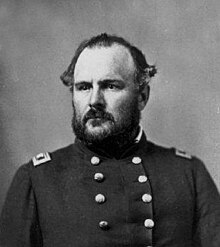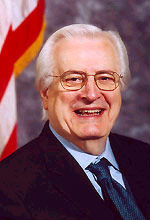
November 29 is the 333rd day of the year (334th in leap years) in the Gregorian calendar. There are 32 days remaining until the end of the year.
Holidays
- Christian feast day:
- International Day of Solidarity with the Palestinian People (International)
- Liberation Day or Dita e Çlirimit (Albania)
- Republic Day (Yugoslavia)
- Unity Day (Vanuatu)
- William Tubman’s Birthday (Liberia)
History
In 561, King Chlothar I dies at Compiègne. The Merovingian dynasty is continued by his four sons — Charibert I, Guntram, Sigebert I and Chilperic I — who divide the Frankish Kingdom.
In 800, Charlemagne arrives at Rome to investigate the alleged crimes of Pope Leo III.

In 1330, Roger Mortimer, 1st Earl of March, English soldier and politician, Lord Lieutenant of Ireland (b. 1287) was accused of assuming royal power and of various other high misdemeanours, he was condemned without trial and ignominiously hanged at Tyburn on 29 November 1330, his vast estates forfeited to the crown. His body hung at the gallows for two days and nights in full view of the populace. Mortimer’s widow Joan received a pardon in 1336 and survived till 1356. She was buried beside Mortimer at Wigmore, but the site was later destroyed.
He was an English nobleman and powerful Marcher lord who gained many estates in the Welsh Marches and Ireland following his advantageous marriage to the wealthy heiress Joan de Geneville, 2nd Baroness Geneville. In November 1316, he was appointed Lord Lieutenant of Ireland. He was imprisoned in the Tower of London in 1322 for having led the Marcher lords in a revolt against King Edward II in what became known as the Despenser War. He later escaped to France, where he was joined by Edward’s queen consort Isabella, whom he took as his mistress. After he and Isabella led a successful invasion and rebellion, Edward was subsequently deposed; Mortimer allegedly arranged his murder at Berkeley Castle. For three years, Mortimer was de facto ruler of England before being himself overthrown by Edward’s eldest son, Edward III.
In 1394, The Korean king Yi Seong-gye, founder of the Joseon Dynasty, moves the capital from Kaesŏng to Hanyang, today known as Seoul.
In 1549, The papal conclave of 1549–50 begins.
In 1612, The Battle of Swally takes place, which loosens the Portuguese Empire‘s hold on India.
In 1729, Natchez Indians massacre 138 Frenchmen, 35 French women, and 56 children at Fort Rosalie, near the site of modern-day Natchez, Mississippi.
In 1776, American Revolutionary War: The Battle of Fort Cumberland, Nova Scotia, comes to an end with the arrival of British reinforcements. The Battle of Fort Cumberland (also known as the Eddy Rebellion) was an attempt by a small number of militia commanded by Jonathan Eddy to bring the American Revolutionary War to Nova Scotia in late 1776. With minimal logistical support from Massachusetts and four to five hundred volunteer militia and Natives, Eddy attempted to besiege and storm Fort Cumberland in central Nova Scotia (near the present-day border between Nova Scotia and New Brunswick) in November 1776.
The fort’s defenders, the Royal Fencible American Regiment led by Joseph Goreham, a veteran of the French and Indian War, successfully repelled several attempts by Eddy’s militia to storm the fort, and the siege was ultimately relieved when the RFA plus Royal Marine reinforcements drove off the besiegers on November 29. In retaliation for the role of locals who supported the siege, numerous homes and farms were destroyed, and Patriot sympathizers were driven out of the area. The successful defense of Fort Cumberland preserved the territorial integrity of the British Maritime possessions, and Nova Scotia remained loyal throughout the war.
In 1777, San Jose, California, is founded as Pueblo de San José de Guadalupe. It is the first civilian settlement, or pueblo, in Alta California.
In 1781, The crew of the British slave ship Zong murders 133 Africans by dumping them into the sea to claim insurance.
In 1783, A 5.3 magnitude earthquake strikes New Jersey.

In 1797, Samuel Langdon, American clergyman and academic (b. 1723) dies in Hampton Falls, New Hampshire on 29 November 1797. He was an American Congregational clergyman and educator. After serving as pastor in Portsmouth, New Hampshire, he was appointed president of Harvard University in 1774. He held that post until 1780.
At Harvard, his ardent patriotism led him to adopt measures that were obnoxious to the Tory students, and although he endeavored to administer the government of the college with justice, his resignation was virtually compelled in 1780. The following year, he became pastor of the Congregational church at Hampton Falls, New Hampshire.
In 1788, he was a delegate to the New Hampshire convention that adopted the Constitution of the United States, often led its debates, and did much to remove prejudice against the Constitution.
Langdon was distinguished as a scholar and theologian, and exerted a wide influence in his community. The University of Aberdeen gave him the degree of Doctor of Divinity in 1762. He was a charter member of the American Academy of Arts and Sciences. He published Summary of Christian Faith and Practice (1768); Observations on the Revelations (1791); Remarks on the Leading Sentiments of Dr. Hopkins’s System of Doctrines (1794) and many sermons. In 1761, in connection with Colonel Joseph Blanchard, he prepared and published a map of New Hampshire.
In 1830, November Uprising: An armed rebellion against Russia‘s rule in Poland begins.
In 1847, The Sonderbund is defeated by the joint forces of other Swiss cantons under General Guillaume-Henri Dufour.
In 1847, Whitman Massacre: Missionaries Dr. Marcus Whitman, his wife Narcissa, and 15 others are killed by Cayuse and Umatilla Indians, causing the Cayuse War.
In 1850, The treaty, Punctation of Olmütz, is signed in Olomouc. Prussia capitulates to Austria, which will take over the leadership of the German Confederation.

In 1864, American Indian Wars: Sand Creek Massacre – Colorado volunteers led by Colonel John Chivington massacre at least 150 Cheyenne and Arapaho noncombatants inside Colorado Territory.
In 1864, American Civil War: Battle of Spring Hill – A Confederate advance into Tennessee misses an opportunity to crush the Union Army. General John Bell Hood is angered, which leads to the Battle of Franklin.
In 1872, American Indian Wars: The Modoc War begins with the Battle of Lost River.
In 1877, Thomas Edison demonstrates his phonograph for the first time.
In 1885, End of Third Anglo-Burmese War, and end of Burmese monarchy
In 1890, The Meiji Constitution goes into effect in Japan, and the first Diet convenes.
In 1893, The Ziqiang Institute, today known as Wuhan University, is founded by Zhang Zhidong, governor of Hubei and Hunan Provinces in late Qing Dynasty China, after his memorial to the throne is approved by the Qing Government.
In 1902, The Pittsburgh Stars defeated the Philadelphia Athletics, 11-0, at the Pittsburgh Coliseum, to win the first championship associated with an American national professional football league.
In 1929, U.S. Admiral Richard E. Byrd leads the first expedition to fly over the South Pole.

In 1942, Boyd Wagner, American colonel and pilot (b. 1916) dies in a routine flight in a P-40K from Eglin Field, Florida to Maxwell Field, Alabama on November 29, 1942. He was an American aviator and the first United States Army Air Corps (USAAC) fighter ace of World War II. Wagner was a first lieutenant commanding the 17th Pursuit Squadron stationed at Nichols Field on December 8, 1941, when the first Japanese air attacks struck the Philippines.
Wagner was born October 26, 1916 in Emeigh, Cambria County, Pennsylvania, the son of Boyd M. and Elizabeth M. Moody Wagner.
He was nicknamed “Buzz” because it was said he could buzz the camouflage off a hangar roof.
In 1943, World War II: The second session of the Anti-Fascist Council for the National Liberation of Yugoslavia (AVNOJ), held to determine the post-war ordering of the country, concludes in Jajce in what is now Bosnia and Herzegovina.
In 1944, The first surgery (on a human) to correct blue baby syndrome is performed by Alfred Blalock and Vivien Thomas.
In 1944, World War II: Albania is liberated by partisan forces.
In 1945, The Federal People’s Republic of Yugoslavia is declared.
In 1946, The All Indonesia Centre of Labour Organizations (SOBSI) is founded in Jakarta.
In 1947, Partition Plan: The United Nations General Assembly approves a plan for the partition of Palestine.
In 1947, First Indochina War: French forces carry out a massacre at Mỹ Trạch, Vietnam.
In 1950, Korean War: North Korean and Chinese troops force United Nations forces to retreat from North Korea.
In 1952, Korean War: U.S. President-elect Dwight D. Eisenhower fulfills a campaign promise by traveling to Korea to find out what can be done to end the conflict.
In 1961, Project Mercury: Mercury-Atlas 5 Mission – Enos, a chimpanzee, is launched into space. The spacecraft orbits the Earth twice and splashes down off the coast of Puerto Rico.
In 1963, U.S. President Lyndon B. Johnson establishes the Warren Commission to investigate the assassination of President John F. Kennedy.
In 1965, The Canadian Space Agency launches the satellite Alouette 2.
In 1967, Vietnam War: U.S. Secretary of Defense Robert McNamara announces his resignation.
In 1972, Atari announces the release of Pong, the first commercially successful video game.
In 1975, Graham Hill and Tony Brise, along with three other members of the Embassy Hill F1 team, were killed when their plane crashed at Arkley golf course, England, in thick fog.

In 1986, Cary Grant, English-American actor (b. 1904) dies of a massive stroke at St. Luke’s Hospital in Davenport, Iowa. He was 82. He was a British-American actor, known as one of classic Hollywood‘s definitive leading men. He began a career in Hollywood in the early 1930s, and became known for his transatlantic accent, debonair demeanor, and light-hearted approach to acting and sense of comic timing. He became an American citizen in 1942.
Born in Horfield, Bristol, Grant became attracted to theatre at a young age, and began performing with a troupe known as “The Penders” from the age of six. After attending Bishop Road Primary School and Fairfield Grammar School in Bristol, he toured the country as a stage performer, and decided to stay in New York City after a performance there. He established a name for himself in vaudeville in the 1920s and toured the United States before moving to Hollywood in the early 1930s. He initially appeared in crime films or dramas such as Blonde Venus (1932) and She Done Him Wrong (1933), but later gained renown for his appearances in romantic comedy and screwball comedy films such as The Awful Truth (1937), Bringing Up Baby (1938), His Girl Friday (1940) and The Philadelphia Story (1940). Along with the later Arsenic and Old Lace (1944) and I Was a Male War Bride (1949); these films are frequently cited as among the all-time great comedy films. Having established himself as a major Hollywood star, he was nominated twice for the Academy Award for Best Actor, for Penny Serenade (1941) and None but the Lonely Heart (1944).
In the 1940s and 1950s, Grant forged a working relationship with the director Alfred Hitchcock, appearing in films such as Suspicion(1941), Notorious (1946), To Catch a Thief (1955) and North by Northwest (1959). Hitchcock admired Grant and considered him to have been the only actor that he had ever loved working with. Towards the end of his film career, Grant was praised by critics as a romantic leading man, and received five Golden Globe Award for Best Actor nominations, including Indiscreet (1958) with Ingrid Bergman, That Touch of Mink (1962) with Doris Day, and Charade (1963) with Audrey Hepburn. He is remembered by critics for his unusually broad appeal, as a handsome, suave actor who did not take himself too seriously, possessing the ability to play with his own dignity in comedies without sacrificing it entirely. His comic timing and delivery made Grant what Premiere magazine considers to have been “quite simply, the funniest actor cinema has ever produced”.
In 1986, The Surinamese military attacks the village of Moiwana during the Suriname Guerrilla War, killing at least 39 civilians, mostly women and children
In 1987, Korean Air Flight 858 explodes over the Thai-Burmese border, killing 155.
In 1990, Gulf War: The United Nations Security Council passes two resolutions to restore international peace and security if Iraq does not withdraw its forces from Kuwait and free all foreign hostages by January 15, 1991.
In 2006, Colorado State Sen. Andy McElhany was angry when the state’s Department of Motor Vehicles refused to issue his 15-year-old daughter a learner’s permit to drive, citing a newly passed anti-illegal-immigrant law. “Our daughter is a legal citizen with a legal passport,” complained the politician, who represented Colorado Springs.
But the new state law requires two forms of identification to prove citizenship — a passport is not enough, even though by definition it proves citizenship. “You need to have a policy in place, but you need to tell people what the policy is so they’ll know what to expect to get an ID,” McElhany complained. “What’s going on now is crazy.” McElhany, the senate’s minority leader, passionately campaigned for the new law the DMV was following.
The State Senator, due to term limits, left office in 2007.

In 2007, Henry Hyde, American lawyer and politician (b. 1924) dies at Rush University Medical Center in Chicago following complications from open heart surgery at Provena Mercy Medical Center in Aurora, Illinois several months earlier. an American politician, was a Republican member of the United States House of Representatives from 1975 to 2007, representing the 6th District of Illinois, an area of Chicago’s northwestern suburbs which included O’Hare International Airport. He chaired the Judiciary Committee from 1995 to 2001, and the House International Relations Committee from 2001 to 2007. He gained national attention for his leadership role in managing the impeachment trial of President Bill Clinton.
He was survived by his second wife, Judy Wolverton and by his four children from his first marriage, to Jeanne Simpson Hyde.
In 2007, The Armed Forces of the Philippines lay siege to the Peninsula Manila after soldiers led by Senator Antonio Trillanes stage a mutiny.
In 2007, A 7.4 magnitude earthquake occurs off the northern coast of Martinique. This affects the Eastern Caribbean as far north as Puerto Rico and as far south as Trinidad.
In 2009, Maurice Clemmons shoots and kills four police officers inside a coffee shop in Lakewood, Washington.
In 2012, The United Nations General Assembly voted to accord non-member observer state to Palestine. See, even the intelligent of the world can do something stupid.
In 2013, LAM Mozambique Airlines Flight 470 crashes in Namibia, killing 33 people.
In 2014, Taiwan local elections, the Democratic Progressive Party won a landslide victory.


